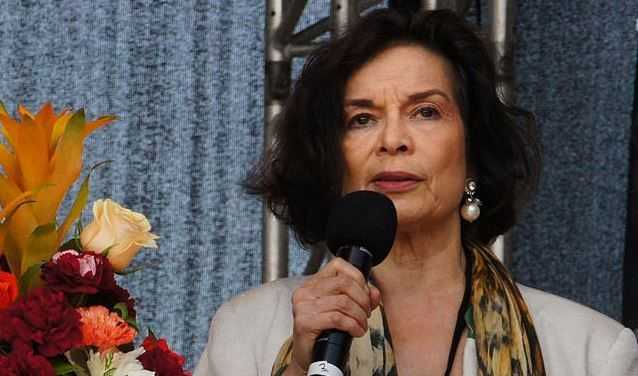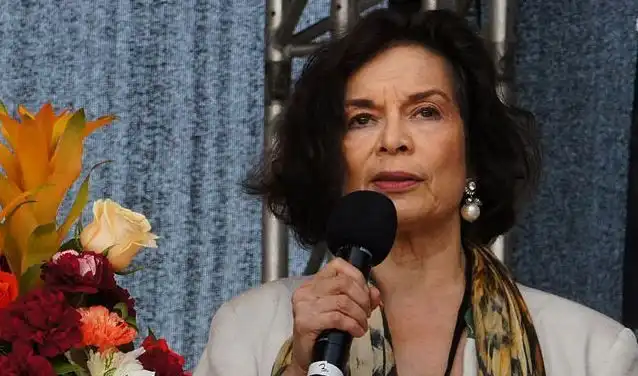Home>Bianca Jagger, a Sciences Po Alumna

27.08.2015
Bianca Jagger, a Sciences Po Alumna
Arriving at Sciences Po in Paris fresh from Nicaragua, the stunning 17-year-old Bianca Perez-Mora Macias couldn’t have imagined that she would one day marry the world’s biggest rock star and become the most glamorous, in-demand style icon of international jet set.
She came to France to study political science. Passionate about politics from a tender age, she grew up in the 1950s under the Somoza dictatorship, and would often slip out of her religious school to join protests in the streets of Managua. Political science would ultimately become her future dream, a way to help rid her country of tyranny.
Meeting Mick Jagger in 1970 would change everything, but certainly didn’t extinguish her passion for public affairs nor for the defence of human rights. And the name Jagger, maintained after their divorce in 1979, was an advantage in focusing attention on her various issues. She wasted no time establishing a relationship with Amnesty International and Human Rights Watch, travelling around Latin America to talk about crimes committed by dictatorial regimes, and criss-crossing the United States, from courts to prisons, to fight against the death penalty. Authorised by the U.S. Congress Helsinki Commission to investigate mass rape in Bosnia, she spent months there, then publishing an essay, “J’accuse: the Betrayal of Srebenica.” This commitment would lead her to testify before American, British and European parliamentarians and many international courts.
A TIRELESS ADVOCATE
Bianca Jagger defends many causes around the world. Indigenous peoples can count on her support as they fight to preserve their environment - the Miskito of Nicaragua, the Guarani of Brazil and the Siona people in Ecuador amongst them. In India to defend the Kondh tribe concerned about bauxite mining projects in their sacred Orissa mountains, she wrote to the Indian prime minister and the provincial governor, canvassed the mining company’s key shareholders and even bought shares herself in order to speak out at their annual general meetings. A winning strategy, like so many others.
Today, it’s Brazil’s president, Dilma Roussef, on the receiving end of her efforts to highlight the dangers of the Belo Monte Dam, the third biggest hydroelectric dam in the world. In fact, one of her major crusades is to garner the International Criminal Court’s recognition of the notion of crimes against current and future generations.
She has travelled to Afghanistan in support of women, to Zambia for the fight against HIV, to India to denounce child trafficking and prostitution, and to Iraq to condemn the ineptitude of President Bush’s arguments about weapons of mass destruction. She exhorts heads of state in the West to receive Edward Snowden, proclaims her disappointment that Obama has not yet closed Guantanamo and continues to make use of drones. Every day she denounces violence against women.
All of these efforts were recognised in 2004 when she received the “alternative Nobel prize”, the Right Livelihood Award. This enabled her to create her own foundation in 2006.
Activist? She’s not a fan of this particular English word. Defender of universal human rights? She struggles in vain to find the right word in French. But the term doesn’t matter. After the “parentheses” of her marriage, she wants to remain faithful to the protesting teenager who dreamt of “making a difference” one day. That’s what matters, she says. “I am viscerally political.”
Taken from the newspaper Emile Boutmy, by Annick Cojean, Sciences Po Alumna, reporter with Le Monde
